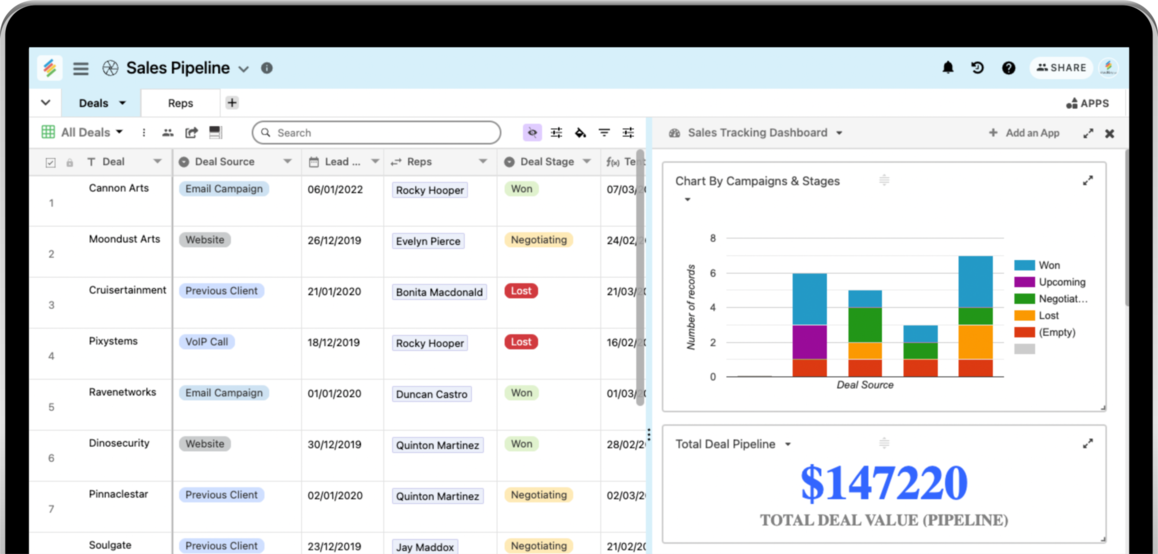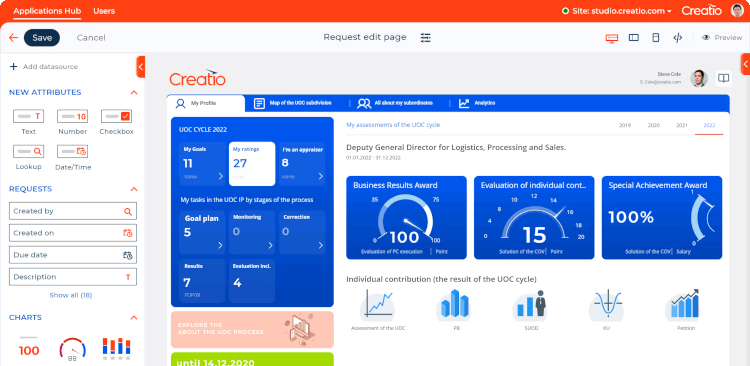Open the Power of No-Code for Open System Data Source Production
Open the Power of No-Code for Open System Data Source Production
Blog Article
Discover How Scalable Databases Can Be Made Use Of Without Coding to Improve Your Company Procedures
In today's busy business setting, the ability to handle and examine information successfully is extremely important. Scalable databases, specifically when coupled with no-code solutions, supply a transformative technique that encourages non-technical customers to streamline procedures. By utilizing tools that require no coding proficiency, organizations can enhance their functional capabilities while lessening reliance on IT sources. The actual concern lies in understanding just how these options can be tailored to specific service requirements and what potential obstacles might occur in their implementation. Exploring these elements can illuminate the course to functional quality.
Understanding Scalable Databases
Scalable databases are vital for modern-day service procedures, allowing companies to successfully take care of increasing volumes of data without giving up efficiency. These databases are developed to expand and adjust to the changing needs of an organization, ensuring that they can handle larger datasets and more complex queries as business requirements develop.
Comprehending scalable databases involves acknowledging their two main types: vertical scaling and straight scaling. Vertical scaling, or "scaling up," entails including even more power (CPU, RAM) to an existing web server to boost performance. Alternatively, straight scaling, or "scaling out," requires adding much more web servers to disperse the tons, which commonly results in better versatility and fault tolerance.
Another vital element is the architecture of scalable databases, which can be either non-relational or relational. Relational databases, such as MySQL and PostgreSQL, are structured and utilize SQL for inquiries, while non-relational databases, like MongoDB and Cassandra, provide even more flexibility with unstructured data.
Ultimately, comprehending scalable data sources is important for services aiming to take advantage of data as a calculated property, enabling them to stay competitive in a progressively data-driven atmosphere.

Advantages of No-Code Solutions
Opening the potential of no-code services empowers businesses to enhance procedures and improve productivity without the need for considerable programs knowledge. These platforms permit non-technical customers to create, modify, and handle data sources effortlessly, thus equalizing access to technology throughout groups.
Among the key advantages of no-code solutions is their speed of application. Services can rapidly release applications and automate procedures, significantly reducing the time invested in development cycles. This dexterity makes it possible for companies to respond immediately to market adjustments and consumer needs, cultivating an one-upmanship.
Furthermore, no-code systems reduce reliance on IT departments for day-to-day tasks, permitting technical teams to concentrate on even more intricate tasks that need specialized abilities. This change not just optimizes source appropriation but likewise promotes innovation within the organization.
Cost-effectiveness is an additional advantage, as no-code remedies can lower advancement and upkeep expenditures. By lessening the need for coding competence, companies can harness the abilities of their existing labor force without the overhead of hiring additional employees.
Popular No-Code Data Source Devices
The increase of no-code services has actually brought about the emergence of various database devices that satisfy companies seeking effectiveness and accessibility. These devices encourage customers with minimal technical competence to produce, manage, and control databases flawlessly.

Caspio sticks out for its ability to construct web applications with no coding. It permits organizations to create durable data sources and deploy applications quickly, accommodating numerous market requirements. Propensity provides easy to use interfaces and effective information management abilities, enabling companies to construct customized applications tailored to their workflows.
Use Situations in Organization Workflow
How can click here for more companies utilize database devices to improve their operations? Scalable data sources supply companies with effective capacities to take care of and examine data without the demand for considerable coding knowledge. These devices can streamline numerous organization procedures, ultimately bring about boosted performance and efficiency.
One prominent use situation is customer relationship monitoring (CRM) Organizations can make use of scalable databases to track customer communications, choices, and feedback, allowing tailored communication and much better solution. By systematizing this info, teams can team up more successfully and reply to client demands in real-time.
An additional considerable application is inventory administration. Firms can utilize no-code database tools to keep track of supply degrees, track deliveries, and projection need. This ensures optimal supply levels, minimizes waste, and lessens stockouts.
Furthermore, task management can take advantage of scalable databases by enabling groups to handle tasks, target dates, and resources in an unified system. With real-time updates and data visualization, job supervisors can make enlightened choices.
Obtaining Began With Execution
Applying scalable databases in organization operations needs a structured approach to make certain successful assimilation and application. The very first step is to perform a complete requirements analysis, recognizing particular company demands, data kinds, and expected development patterns. This foundational understanding will certainly assist the choice of the appropriate data source option.
Next, select an user-friendly, no-code database platform that straightens with your functional goals. no-code. Many contemporary services provide user-friendly interfaces, enabling non-technical individuals to handle data effectively. After choosing a platform, develop a clear information architecture that describes just how information will certainly be organized, accessed, and kept
Training is crucial; guarantee that staff member are equipped with the required skills to make use of the database. Think about providing tutorials or workshops to acquaint staff with the system's functionalities.
Final Thought
In conclusion, the assimilation of scalable databases via no-code options offers considerable benefits for business procedures. These platforms empower non-technical users to efficiently handle and examine information, promoting enhanced decision-making and cooperation. By taking on devices such as Airtable and Idea, organizations can reduce and simplify processes dependancy on IT resources. Eventually, leveraging these innovations can cause improved performance and operational performance, positioning organizations find out this here for continual growth in a competitive landscape.
One preferred no-code database tool is Airtable, which incorporates the capability of a spread sheet with the power of a data source.Just how can businesses take advantage of database tools to boost their operations? Organizations can make use of scalable databases to track consumer communications, choices, and comments, making it possible for individualized communication and much better solution.Executing scalable data sources in business operations requires a structured method to make sure effective integration and utilization.In conclusion, the integration of scalable databases through no-code solutions presents significant benefits for service procedures.
Report this page